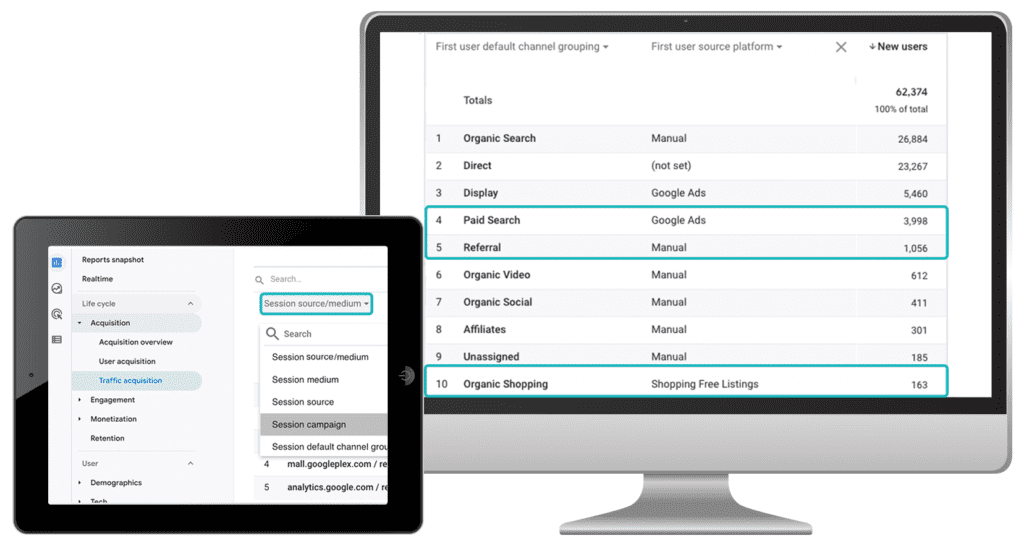Should You Use UTM Code For Your Email Campaigns?
By advertience | March 22, 2023 | Article
Maximize your email campaigns with UTM codes. Track clicks, conversions, and more with precision. Let Advertience guide you to success!

Using UTM codes for your email campaigns can be a very useful way to track the performance and effectiveness of your campaigns. UTM codes are short pieces of code that you and your digital marketing agency can add to your campaign URLs to help Google Analytics 4 (GA4) (or other analytics tools) track clicks and traffic from those specific sources.
Here are some benefits of using UTM codes for email
campaigns:
- Tracking performance: UTM codes allow you and your digital marketing agency to track how many clicks and conversions came from your email campaigns, and which specific campaigns or links performed the best. This data can help you understand what’s working well and what could be improved.
- Attribution: UTM codes can help you and your digital marketing expert determine which campaigns or sources are driving the most traffic and conversions, which can be especially helpful when trying to understand the impact of your marketing efforts.
- Personalization: UTM codes can also be used to track individual subscribers, which can help you and your digital marketing agency personalize your marketing and provide a better experience for your subscribers.
- Testing: UTM codes can be used to test different versions of your email campaigns, such as subject lines, content, and calls-to-action. By tracking the performance of different versions with UTM codes, you and your digital marketing agency can make data-driven decisions about which versions are most effective.

The UTM code consists of several parameters, including:
- Source (utm_source): This parameter identifies the specific source of the traffic to your website, such as a particular social media platform or email campaign.
- Medium (utm_medium): This parameter identifies the general category of the traffic source, such as “email,” “CPC,” or “organic search.”
- Campaign (utm_campaign): This parameter identifies the specific marketing campaign that the traffic is associated with, such as a product launch or a promotional sale.
- Content (utm_content): This optional parameter can be used to identify specific versions or elements of an ad or campaign, such as different versions of an email or different ad placements.
- Term (utm_term): This optional parameter can be used to track specific keywords that were used in a paid search campaign.
UTM codes are added to the end of the URL as a query string and are separated by ampersands (&). For example, a UTM code for an email campaign might look like this:
https://www.example.com/?utm_source=email&utm_medium=newsletter&utm_campaign=summer_sale
Once you have UTM codes in campaigns, you would be able to see the performance in your Google Analytics 4 (GA4) account.
Overall, UTM codes are a useful tool for tracking the effectiveness of marketing campaigns and identifying where traffic is coming from. Implementing a regular Google Analytics 4 (GA4) audit, complemented by consulting services, can further refine this tracking process, ensuring the accuracy and consistency of the data collected. With the guidance of GA4 consultants, such an audit offers insights into any potential discrepancies and helps in fine-tuning the UTM parameters for optimal results, contributing to a more informed marketing strategy.
Advertience is a specialized Google Analytics 4 (GA4) audit and consulting agency based in Vancouver and Toronto. We deliver worldwide in-depth GA4 audits and consultant services, ensuring organizations have a reliable data foundation for making informed business decisions.





